Text
Useful Youtube Channels To Pimp Your Writing (And Get Some Writespo)
1. Alexa Donne
Tons of videos covering everything a writer needs. Also, Alexa Donne is a traditionally published author, so she talks about the publishing process, as well. I really appreciate her openness on certain topics, as well as her articulation.
2. Jenna Moreci
Another traditionally published author, Jenna Moreci gives a lot of “How To” tipps, but also speaks about taboos when it comes to writing (especially dead tropes). Although her advice may be harsh most of the time, she involves a ton of humor.
3. Abbie Emmons
Abbie Emmons is a self-published author. In her videos she covers a lot of theoretical topics, such as the 3 Arc Structure, Character Building and Plot Twists. If you really want to look behind your own story/your characters/your world and how exactly it functions, this is your place to go!
4. Merphy Napier - Dear Authors... Series
While Merphy’s channel focuses more on reading than writing, she gives a lot of advice for authors in her “Dear Authors” series. There she compiles a bunch of opinions on a certain topic (e.g. romance, protagonists, world building, magic systems, etc.) - it is very helpful when trying to avoid dead tropes.
OTHER CHANNELS TO CHECK OUT
iWriterly
ShaelinWrites
36 notes
·
View notes
Text
Books You Should Read to Improve Your Writing (Fantasy Edition)
1. The Language of Thorns by Leigh Bardugo

Travel to a world of dark bargains struck by moonlight, of haunted towns and hungry woods, of talking beasts and gingerbread golems, where a young mermaid’s voice can summon deadly storms and where a river might do a lovestruck boy’s bidding but only for a terrible price. Inspired by myth, fairy tale, and folklore, #1 New York Times–bestselling author Leigh Bardugo has crafted a deliciously atmospheric collection of short stories filled with betrayals, revenge, sacrifice, and love. Perfect for new readers and dedicated fans, these tales will transport you to lands both familiar and strange—to a fully realized world of dangerous magic that millions have visited through the novels of the Grishaverse. This collection of six stories includes three brand-new tales, all of them lavishly illustrated with art that changes with each turn of the page, culminating in six stunning full-spread illustrations as rich in detail as the stories themselves. (Goodreads summary)
Aspects of writing this book will teach you: Mythology, Fairy Tales & Short stories
This is one of the few books to receive a 5/5 star review from me. It was so stunning that I just couldn’t put it down. Each story is rich with original myths, interesting lessons and gorgeous story lines.
If you want to write fairy tales, short stories or mythology - this is the book for you.
2. His Dark Materials series by Philip Pullman

The Golden Compass, The Subtle Knife, and The Amber Spyglass are available together in one volume perfect for any fan or newcomer to this modern fantasy classic series. These thrilling adventures tell the story of Lyra and Will—two ordinary children on a perilous journey through shimmering haunted otherworlds. They will meet witches and armored bears, fallen angels and soul-eating specters. And in the end, the fate of both the living—and the dead—will rely on them. Phillip Pullman’s spellbinding His Dark Materials trilogy has captivated readers for over twenty years and won acclaim at every turn. It will have you questioning everything you know about your world and wondering what really lies just out of reach. (Goodreads summary)
Aspects of writing these books will teach you: Creating a magic system and fantasy world
Anyone who has read these books (or even watched the movie) will agree that Pullman’s magic system is unlike any other. The world is so intricately woven and the fantasy so original that it has become one of the most popular series of all time.
So, do yourself a favour and learn from the best.
3. Keeper by Kim Chance

When a 200-year-old witch attacks her, sixteen-year-old bookworm Lainey Styles is determined to find a logical explanation. Even with the impossible staring her in the face, Lainey refuses to believe it—until she finds a photograph linking the witch to her dead mother. After consulting a psychic, Lainey discovers that she, like her mother, is a Keeper: a witch with the exclusive ability to unlock and wield the Grimoire, a dangerous but powerful spell book. But there’s a problem. The Grimoire has been stolen by a malevolent warlock who is desperate for a spell locked inside it—a spell that would allow him to siphon away the world’s magic. With the help of her comic-book-loving best friend and an enigmatic but admittedly handsome street fighter, Lainey must leave her life of college prep and studying behind to prepare for the biggest test of all: stealing back the book. (Goodreads summary)
Aspects of writing this book will teach you: Pop-culture references
Most of the time, pop culture references in books feel forced and inauthentic. But not in this one. Kim sprinkles in references that are actually relevant, contribute to the scene and that readers will actually get.
4. Strange the Dreamer by Laini Taylor

The dream chooses the dreamer, not the other way around—and Lazlo Strange, war orphan and junior librarian, has always feared that his dream chose poorly. Since he was five years old he’s been obsessed with the mythic lost city of Weep, but it would take someone bolder than he to cross half the world in search of it. Then a stunning opportunity presents itself, in the person of a hero called the Godslayer and a band of legendary warriors, and he has to seize his chance or lose his dream forever. What happened in Weep two hundred years ago to cut it off from the rest of the world? What exactly did the Godslayer slay that went by the name of god? And what is the mysterious problem he now seeks help in solving? The answers await in Weep, but so do more mysteries—including the blue-skinned goddess who appears in Lazlo’s dreams. How did he dream her before he knew she existed? And if all the gods are dead, why does she seem so real? (Goodreads summary)
Aspects of writing this book will teach you: Creating absolutely original stories and worlds
I don’t know where Laini Taylor gets her ideas, but that woman’s mind is amazing. You will never read anything else quite like this book.
5. An Ember in the Ashes by Sabaa Tahir
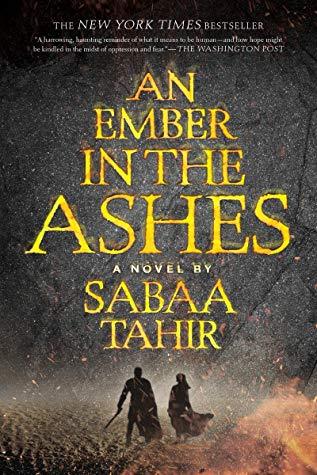
Laia is a slave. Elias is a soldier. Neither is free. Under the Martial Empire, defiance is met with death. Those who do not vow their blood and bodies to the Emperor risk the execution of their loved ones and the destruction of all they hold dear. It is in this brutal world, inspired by ancient Rome, that Laia lives with her grandparents and older brother. The family ekes out an existence in the Empire’s impoverished backstreets. They do not challenge the Empire. They’ve seen what happens to those who do. But when Laia’s brother is arrested for treason, Laia is forced to make a decision. In exchange for help from rebels who promise to rescue her brother, she will risk her life to spy for them from within the Empire’s greatest military academy. There, Laia meets Elias, the school’s finest soldier—and secretly, its most unwilling. Elias wants only to be free of the tyranny he’s being trained to enforce. He and Laia will soon realize that their destinies are intertwined—and that their choices will change the fate of the Empire itself. (Goodreads summary)
Aspects of writing this book will teach you: Morally grey characters and political intrigue
The characters in this book have various different motivations and beliefs, and they intersect in very interesting ways. If you want to write a story that weaves together fantasy and politics, this is a must-read.
Plus, if you want to move away from the black-and-white of old-school fantasy characters, this book will show you how to do it.
That’s all I have for you for now :)
Reblog if you found this post useful. Comment with the fantasy books you think all writers should read. Follow me for similar content.
2K notes
·
View notes
Text
Building a magic system
A little guide to help you with your magic system.
1. Source
- External source: Energy from the outside that the mage can draw upon or convert into magic energy.
Earth
The atmosphere
Drawn from elements
From another dimensions or realms
Gods
Supernatural entities
Star or planet constellations
Weather phenomena
Magic as life energy
Magic as omnipresent energy that flows through everything
- Internal source: Magic coming from within the body of the mage, generated by him
Coming from the mind
Generated by the body
From the soul
2. Magic control through:
Incantations
Hand gestures
Written symbols
Focus/concentration/will of the mage
By connection to the source (object, supernatural creature, another realms etc)
Rituals
Blood
Sacriface
Emotions
3. Magic limits - what can’t be done by magic
Range of effect
Lenght of effect
Limited by the mage’s focus
Limited by the mage’s stamina
4. Magic costs
Exhaustion of stamina
Pain
Gradual loss of senses
Burning off the mage’s soul
Buring off the mage’s life span
5. People who can use magic:
Born with it
Trained
Bestowed upon them
Awakening magic in some way
Ritual
Deal with a supernatural entity
Consumption of blood of a supernatural creature
Acquiring it from a near-death experience
6. Mages regarded by the society:
Hidden from it
Led by it
Feared
Expelled/hated
1K notes
·
View notes
Text
Magic Systems In Fantasy
Level 0: Anything goes: Fireballs and ightning bolts? Of course! Magic healing? Yes! Both divine miracles and curses? Go for it! What this means for the world and the people who live in it is never explored or explained.
Level 1: There are many different branches of magic, and aspiring magic users focus in one of them to practice their craft. The ability to do magic, and the power of said magic is defined by a certain quality, that may or may not be innate to the mage(such as willpower, discipline, imagination, bloodline, studies…)
Level 2: Magic is regarded in-setting either as a natural phenomenon/law or a set of disciplines(or both!). As such, there are clear, hard rules of what magic can and cannot do. Magical ability may influence a person’s life, either by affecting their social status, their bodies or their minds.
Level 3: Magic is so present it has found its way into the setting’s societies and cultures, and in each of them there is a whole host of rites, practices, taboos and schools of thought regarding the use of magic and where and when is acceptable to use. These may sinergize with the rules and tendencies of magic in the setting.
12 notes
·
View notes
Text
writers
write that sentence, that dialogue, that scene that terrifies you
don’t delete shit, just move it to another document
have a “bits and pieces” document for all the odds and ends you can’t fit anywhere else
think of the color of a person’s eyes, imagine something reflected in them, now write that scene
fiction doesn’t have to be 100% accurate, don’t research yourself to boredom
i’m being serious there’s a thing called suspension of disbelief and it’s magical (yes that’s me making a joke)
write something that makes you cry
write something that makes you laugh
write something you can’t explain to other people
write something you won’t remember until you read it the next day
don’t read about the publishing industry until you really, really need to. all it will do is make you unbelievably tired
listen to music from open world RPG video games, you’re welcome
always take a small journal or some paper and a pen with you
write by hand in a journal every once in a while
put the ending of your story in the beginning and see what happens
listen to input from other people. yes you’re the writer, but they’re the reader and they want to help you make something spectacular
said is not dead dude like wtf
the thesaurus is shiny and lovely and a great resource but don’t let words get in the way of your story telling, you don’t need to write prose as poetry for it to be beautiful
just finish the draft first, worry about perfection after
yes, you do have talent
yes, you can do this. you already are
46K notes
·
View notes
Photo
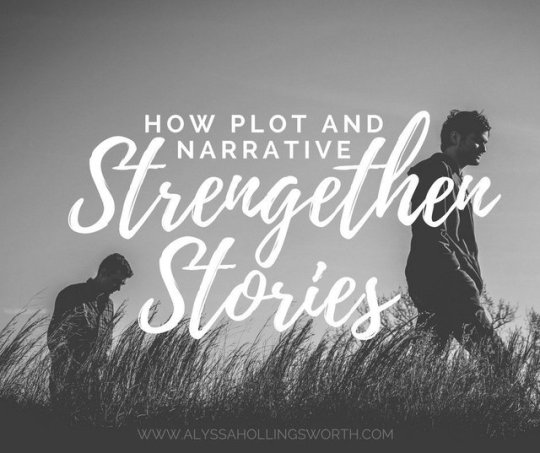
As a young writer, I didn’t know the difference between plot and narrative — or how to make both work for the most compelling hook, arc, and story. Lucy Christopher at Bath Spa University was the first to sit down with me and really explain it.
You need both plot and narrative hints to hook a reader. It’ll take a lot of revisions to get the balance of this right, but hooks that instantly immerse you in the story have this in common: Plot and narrative are working together.
In the opening of Hugo, for instance, the action (plot) that changes everything is when our protagonist tries to steal a mechanical mouse and is caught. But the reason he’s stealing the mouse is his narrative “goal” — he wants to repair the only thing left from his father (so, boiled down, he wants family). The story doesn’t give all of that right up-front, but lets it unfold. The hint is the hook.
So, what do I mean: Plot vs. Narrative?
Weiterlesen
1K notes
·
View notes
Text
male fantasy names
below the cut you’ll find 52 male fantasy inspired names. keep in mind that you can change the names up to make those them sound even more unique and personal!
like or reblog if you save
send a request!

A, B
aeric, aeron, anias, blaiz
C
caed, caley, chael, cassiel, ciaran, cyne
D
dacareon, dailan, darieth, davion, drystan
E, F
eilan, eiran, feron, finnian
G, H, J, I
galien, helion, jadis, jaisen, ilyr, iyan
K, L
kallias, keir, kellen, kien, kit, kova, krinn, lydan
M, N, O
macen, nathair, oreon
R, S
riden, rune, ryven, silas, sion,
T
talon, taren, thorne, titus, tomas, torian, torryn
V, Z
vadim, varian, zariel, zev
#male names#names#name#fantasy name#fantasy names#name masterlist#masterlist#fantasy#writer#writeblr#writer help#writing#novel#fantasy novel#creative#male fantasy names
45 notes
·
View notes
Text
Worldbuilding Tips: The Five Visitors
You’ve done it. You’ve come up with an idea for your fantasy world, but right now it’s mostly curb appeal and decorations without much else. So, you have the skin and flavor of your fictional world, but what if you’re having a bit of trouble coming up with the meat needed to make your world juicy and delicious? Well, I have a little game that can help flesh out your world.
Imagine a ship or whatever other kind of vehicle arriving on the shores or outskirts of your fantasy land and from that vehicle emerges 5 people from our own mundane world: a historian, an economist, an anthropologist, a diplomat, and a cartographer. There are some other visitors, but these are going to be the most universally beneficial.
The Historian:
This person is going to be interested in the backstory of your world. They don’t need to know every minuscule detail (though they wouldn’t turn that much information down) and just a general overview would be much obliged. Many fantasy worlds such as Tolkien’s Middle Earth and Martin’s Westeros are far more rich and interesting due to the amount of effort put into crafting their world’s histories. If you’re stumped, look to real world history for inspiration. It doesn’t even need to come from the middle ages so long as it works for your story. You should be able to answer questions like: How long has the dominant civilization been around? What are the biggest defining moments in your world’s history? What things are common knowledge that every child is expected to learn (such as George Washington being the first president of the USA) and which stuff is known more by historians and social studies teachers? And as you’re discussing the rest of the visitors, think back on how the answers you give would impact the historical aspect.
The Economist:
You don’t have to know the exact cost of every single thing in your world, but have a good guess. Be able to at least have a scale of price. If someone can buy a loaf of bread for 13 of your world’s currency, but a house costs 17, that would mean that either that bread is very expensive, that house is very cheap, or each unit of your currency is equal to a lot of real world money. Whatever you use to refer to your currency, keep not only price scaling in mind, but economics. If you have a port city, there’s going to be a lot of merchants in that area. The first primary export you’re likely to see in such a port town would be seafood, but also keep in mind the things that are closet to that port, as well as the climate. Greece for instance is a very rocky and mountainous country, so while they can grow crops, they would not have been any match for medieval French Aquitaine, the crown jewel of medieval farming territory. It’s also worth remembering that food in the middle ages was far more valuable than it is today. There was an old saying that wheat is worth its weight in gold. It was southern France’s bountiful soil that caused it to become one of the richest and most coveted territories in medieval Europe. So, keep in mind where resources would come from and where they would need to go, as well as trade that would be useful. A seaside farming town might not have any good access to raw minerals, while a city in the frozen mountainous north might not be able to grow crops, but are bountiful in minerals. The correlation of supply and demand now opens a vital trade route between them. This becomes more complex when the topic of war comes into play. The kingdom that supplies your crops and food is at war with your oldest ally. Now there’s a dilemma between having enough food to feed your people, or betraying the trust of a long time friend. Now your world building can be used as a part of your drama and narrative tension. The economy also impacts culture. What is considered a display of wealth, or is a common status symbol? What are the living conditions of the poor, the working class, the rich, and the aristocrats? Is there upward mobility? In the middle ages, you were what you were for the most part, especially serfs: peasants tied to their land. It was illegal to leave your territory, but there was a saying in the middle ages that “city air makes you free” that once a serf made it to a city, they’d be free of the life they’ve escaped.
The Anthropologist:
Every society has a culture. The way they act, think, dress, believe, talk. It’s all impacted by culture. Beliefs tend to be tied either to what has come before, or based on the world as observed. While many modern fantasy pantheons are based on ancient Greece, it’s not the only model to live by. In a loose interpretation, religion in it’s earliest stages was a rudimentary science used to explain why things happened. A culture that developed along rivers, sea coasts, and other popular trade routes are far more likely to be diverse melting pots due to the frequent traffic of people coming and going, and the common sight of foreigners choosing to set down roots. Meanwhile, a more out of the way and isolated culture is far less likely to have widespread cultural diversity. Tying back into history, a country that has experienced a number of successful wars may tend to think of themselves as invincible, or may try to police the issues of other countries, assuming they’re always on the right side, or that they can’t be defeated. The same culture may ask a high price of any other culture that asks them for militaristic support. Ask what things your people value, be they material or abstract ideals. However, try to refrain from creating a Planet of Hats, a trope often seen in Star Trek and similar Sci-Fi shows and even some Fantasy stories where everyone of a single race all have mostly the same skills, interests, personalities, and roles in the global culture. This is also the time to start thinking about myths, legends, folk heroes, and historical people and events worth celebrating, as this may be when you start to craft holidays or celebrations. This could also lead into discussing religion, and the gods or lack there of that might be celebrated by your culture. How does your society reflect itself in art, music, literature, dance. Does the way someone dresses tell you something about their place in society? Some taboos come from simple logic. The reason it’s frowned upon to eat a cow in India is the same reason it’s immoral to eat horse in western culture. Both are beast of burden livestock worth a lot more alive than dead. Cows produce milk, a source of nutrients and health. Horses are strong and were used in just about everything from plowing fields to pulling entire families or communities a great distance. Horses even became status symbols, as even in modern culture, owning a horse or pony is still considered to be (largely) a snobby rich person thing. Understanding not only what your people believe, but even just a vague idea why they would believe it is a vital aspect.
The Diplomat:
As this landing party is your fantasy world’s first contact with our own reality. How would they react to the newcomers? If there’s more than one society in your world, how would each society, country, kingdom, race, etc. react to something completely foreign? Would they try to forge an alliance? Open trade negotiations? Declare war? Prepare a feast? How would they feel about the way we dress? act? talk? How would they react to different levels of progression in technology? Could an unbiased third party from our world help two feuding sides come to peace with one another? How would they feel about knowing of a world beyond their own? Are there actions or behaviors acceptable in our own society that are considered offensive to them?
The Cartographer:
Although it’s not necessary that all fantasy worlds have a fully designed map, it is a good idea to have at least a rough idea of where things are in relation to one another. This can tell you about climate, resources, wildlife, natural borders, natural disasters, food chains, and more. It’s worth at least taking a crash course in understanding how geographical biomes tend to be laid out in order to make your world feel more real. Some authors claim that a world map is the single most important feature, others say it’s not that important. Frankly, trust your gut based on the kind of world you have. You may need a map, you may not. It really depends on the size and scope of your world. For instance, with Disney’s
Zootopia
, the entire world doesn’t matter. The audience doesn’t need to know where in the world Zootopia is, or what climate or biome it’s in. Zootopia itself is the world being built, and the separate districts and biomes of the city explain the world that’s being focused on.
Secondary Visitors:
They may still be important to your world, but are less likely to be universally helpful to all people.
Biologist: if your world has creatures beyond those found in our real world, it may be worth exploring how their bodies work on a more scientific level in order to give more realistic weight to their supernatural abilities.
Linguist/Translator: If you feel compelled to come up with a language no matter how basic or complex, it may be worth while to consider the problems with communication. this may also extend to unique idioms, colloquialisms, and slang native to your fantasy world.
Teacher/Scholar: Regardless of whether or not there is a formal education system in place in your world, a teacher may be interested in how knowledge is passed down, and what information the culture might have that would be unknown to people of our world. Whether that’s how to keep a wild animal from charging you, to knowing how to forge a mineral that exists only in your world, being able to readily answer questions is generally considered to be a good thing.
Healer: There may be healing spells in your world, there may not, but most fantasy stories tend to involve either action or adventure, both of which tend to cause fights. And since fights tend to lead to injuries, it’s important to know what can and cannot be treated, and how readily available these healing abilities are to the public.
5K notes
·
View notes
Photo
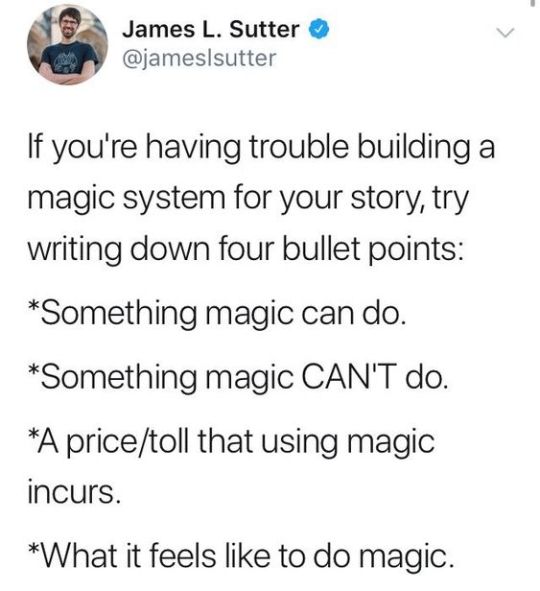
186K notes
·
View notes
Photo
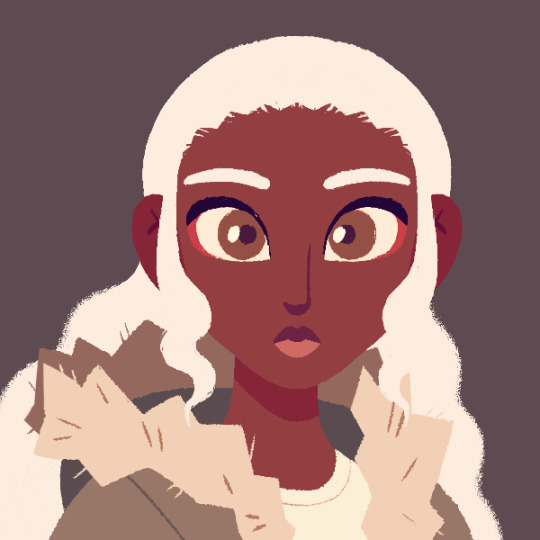





it is 2.30am in the morning but i had to stumble upon this little thing called picrew (x) and decided to create all my protagonists from wings of gold and marble. in order it is salomé, astrid, eira, heline, ilias and celian. they all look so oddly cute and i love it!
you can check out more about this story in my wips section!
1 note
·
View note
Text
nina zenik inspired playlist
below the cut you’ll find a playlist inspired by the wonderful, powerful nina zenik from leigh bardugo’s fantasy novel six of crows. ( gif credit x )
like or reblog if you save
listen here!
leave a request
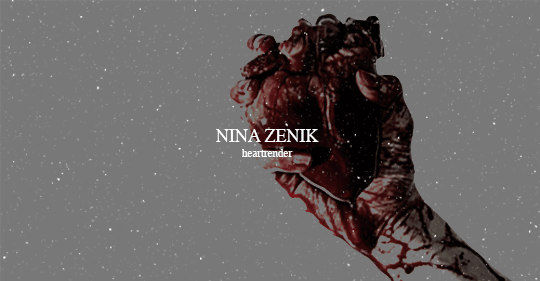
control • halsey | graveyard • halsey | you don’t own me • saygrace feat. g-eazy | nina cried power • hozier, mavis staples | elastic heart • sia | love lies • khalid, normani | strip • little mix feat. sharaya j | survivor • 2wei, edda hayes | breath of life • florence + the machine | soldier • fleurie | a little wicked • valerie broussard | bleed magic • i don’t know how but they found me | war of hearts • ruelle | prom queen • molly kate kestner | crazy ass b*tch • rozzi | my heart’s grave • faouzia | wreak havoc • skylar grey | aawake at night • half•alive | season of the witch • lana del rey
#soc#soc playlist#six of crows#six of crows playlist#playlist#nina zenik#nina zenik playlist#crooked kingdom#heartrender#grisha#zenik#nina#music#love#matthias helvar#bookplaylist#book playlist#playlists#leigh bardugo#corporalki#magic#fantasy
1 note
·
View note
Text
six of crows inspired playlist
below the cut you’ll find a little playlist inspired by leigh bardugo’s amazing fantasy novel six of crows. ( gif by x )
like or reblog, if you save
listen here!
leave a request, if you want to
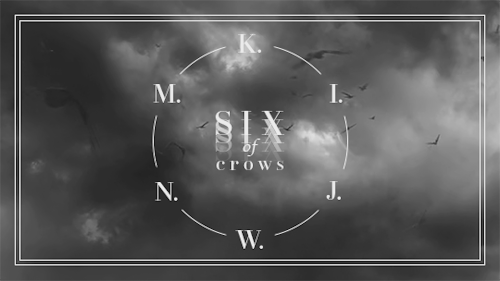
chlorine • twenty one pilots | heathens • twenty one pilots | heavydirtysoul • twenty one pilots | come with me now • kongos | immortals • fall out boy | friction • imagine dragons | warriors • imagine dragons | blood, tears & gold • hurts | victorious • panic! at the disco | renegades • x ambassadors | the devil you know • x ambassadors | trouble • valerie broussard | a little wicked • valerie broussard | lucifer • xov | legendary • welshly arms | up in flames • ruelle | devil’s whisper • raury | human • rag’n’bone man | gold • sir sly | kamikazee • missio | seven nation army • the white stripes | arsonist’s lullaby • hozier | straight shooter • skylar grey | i'm a wanted man • royal deluxe | dangerous • royal deluxe | call me devil • friend in tokyo | you should see me in a crown • billie eilish | river • bishop briggs | won’t go down easy • jaxson gamble | glitter & gold • barns courtney | watch me • the phantoms
#soc#soc playlist#playlist#playlists#book playlist#bookplaylist#book#Leigh bardugo#six of crows#bardugo#fantasy#music#kaz brekker#nina zenik#inej ghafa#matthias helvar#jesper fahey#wylan van eck#crooked kingdom#gang#patd#fall out boy#top
1 note
·
View note
Text
⟨ female ketterdam inspired names ⟩
below the cut you’ll find 86 female names inspired by the fictional city of ketterdam (so they have a dutch flair to them), listed in alphabetical order and with the my favorites in bold.
please like or reblog if you save.
send a request
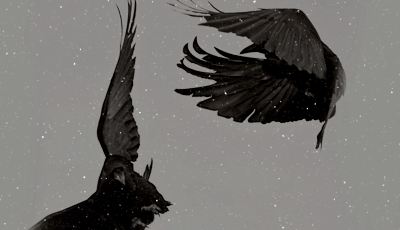
A
anke, anneke, anouk, antje, avien
B
bente, betje, britt
C
catlijn, charlotte, ciska, cornelia
D
diena, dora, drien
E
elsa, emmelina, ette, eva
F
femke, fenje, fenne, finja, frieda,
G
geertje, greta
H
hedwig, hella, hester
I
ida, ilse, imke, iris, isa
J
janke, janne, jente, jette, jill, johanna, jolanda, judith
K
kaat, katrien, klara
L
leona, lieke, lien, liesbeth, linda, lotte, lowina
M
madelein, margaret, margit, marije, marit, meike, meret, meriel, mieke, mina
N
nane, nantje, nele, noa, nora
O, P
olett, paulette
R
ria, rita, romy
S
sanne, sara, silke, sjan, sonja, stiena, swantje, sybil
T
tess, tien, tilda
W
wemke, wiebke, wilhelmina
#names#name masterlist#name#book names#dutch names#rpg#rp#writer#writing#fantasy#regular#drama#romance#ketterdam#six of crows#soc#grishaverse#female names#all names#female book names
31 notes
·
View notes
Text
✧ female names from greek mythology ✧
Under the cut you’ll find 110 female names from greek mythology, listed in alphabetical order with my favourites in bold.
Personally, I think they are great for fantasy books or roleplays.
like or reblog if you save
send a request
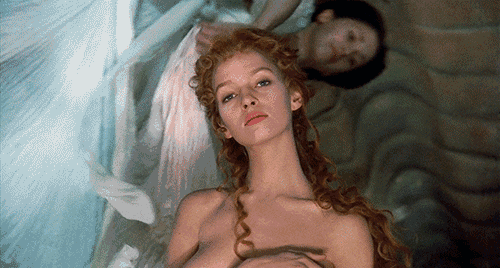
A
acantha, adrasteia, aella, aglaia, alcmene, alexandra, althea, antheia, antigone, aoede, aura, arachne, arete, ariadne, artemis, astraea, atlanta, athena
B
bia, briseis
C
calliope, carme, cassandra, ceto, charis, chione, chloe, chryseis, clio, cleta, cora, cynthia
D
danae, daphne, deianeira, delia, dia, diana, dike, dione, doris
E
echo, eirene, electra, elpis, eris, ennodia, enyo, eos, ersa, eudora, eurydice, evadne
G
gaia
H
harmonia, hebe, hecate, helen, hemera, hermione, hippolyta
I
ianthe, ilithyia, iokaste, iris, iphigenia, ismene
K
kallisto, kamira, klytië
L
lamia, larisa, latona, ligeia, leto, levana, lyssa
M
macaria, maia, medea, medusa, megaera, melaina, melia, mellonia, melpomene, mnemosyne
N, O
nemesis, nephele, nike, niobe, nyx, ourania
P
pandela, pandora, penelope, penia, persephone, phanea, philomela, phoebe, phyllis, polymnia
R, S, T
rhea, selene, thalia, theia, tethys, tyche
X
xanthe
#name#names#writing#write#book#fantasy#greek#greek mythology#write a book#female names#mythology names#female mythology names#rpg#rp#dnd#masterlist#name masterlist
72 notes
·
View notes